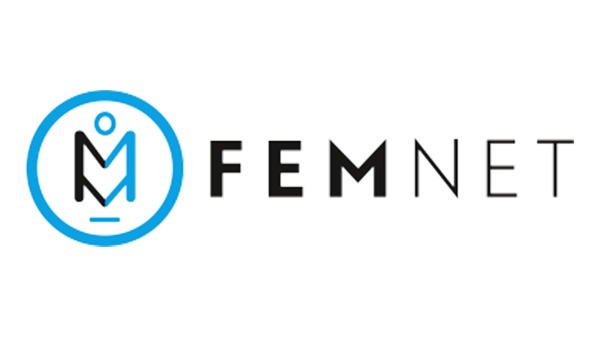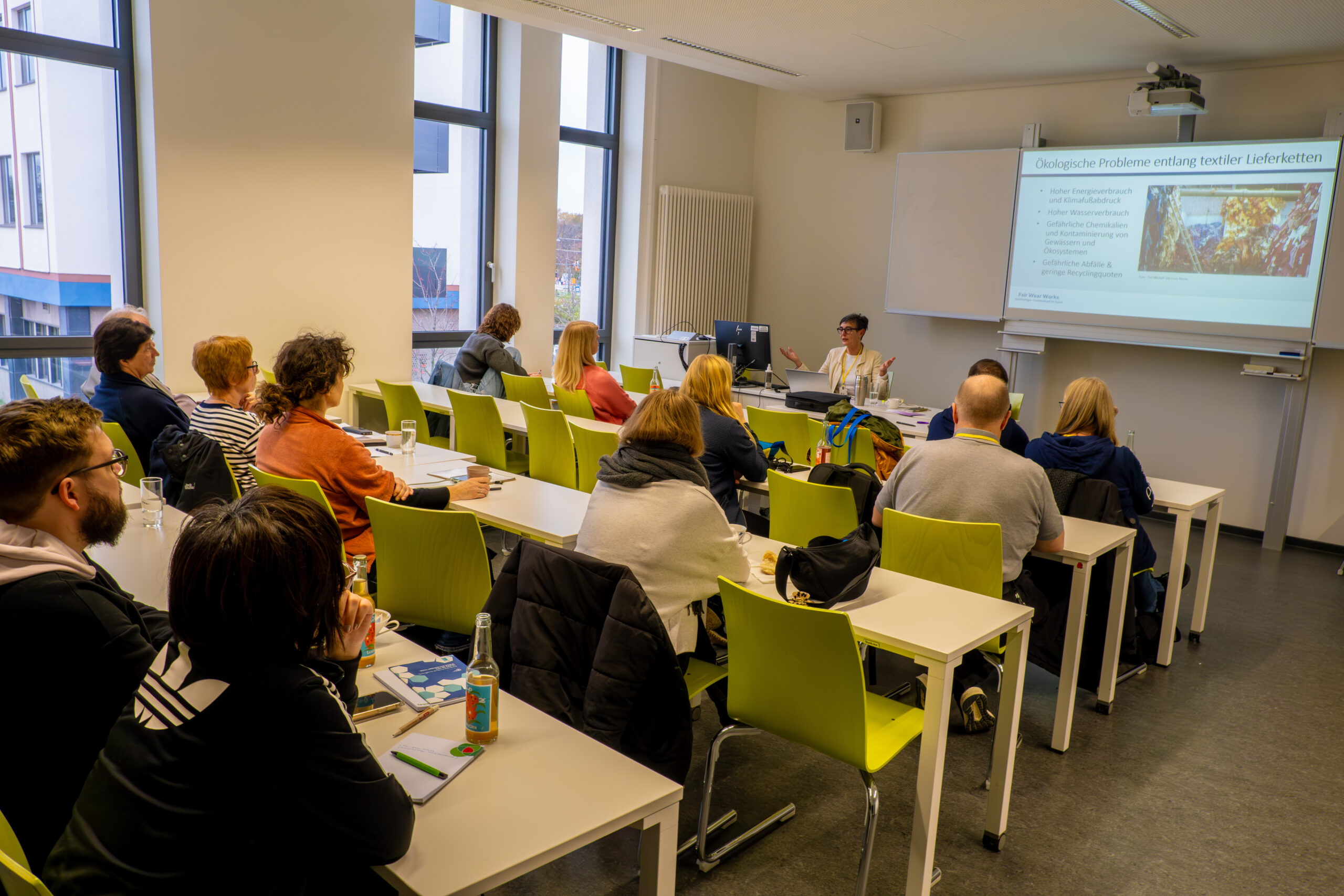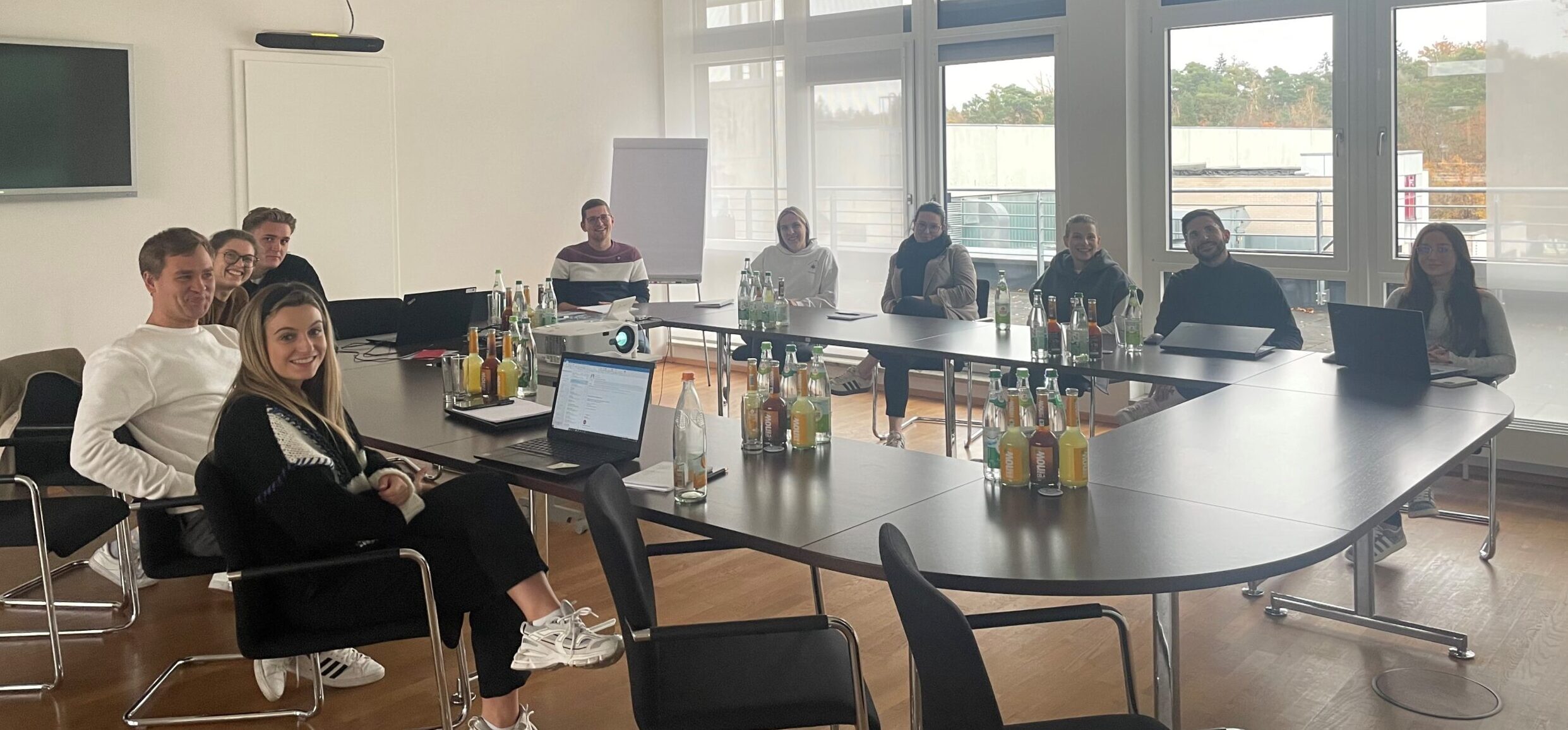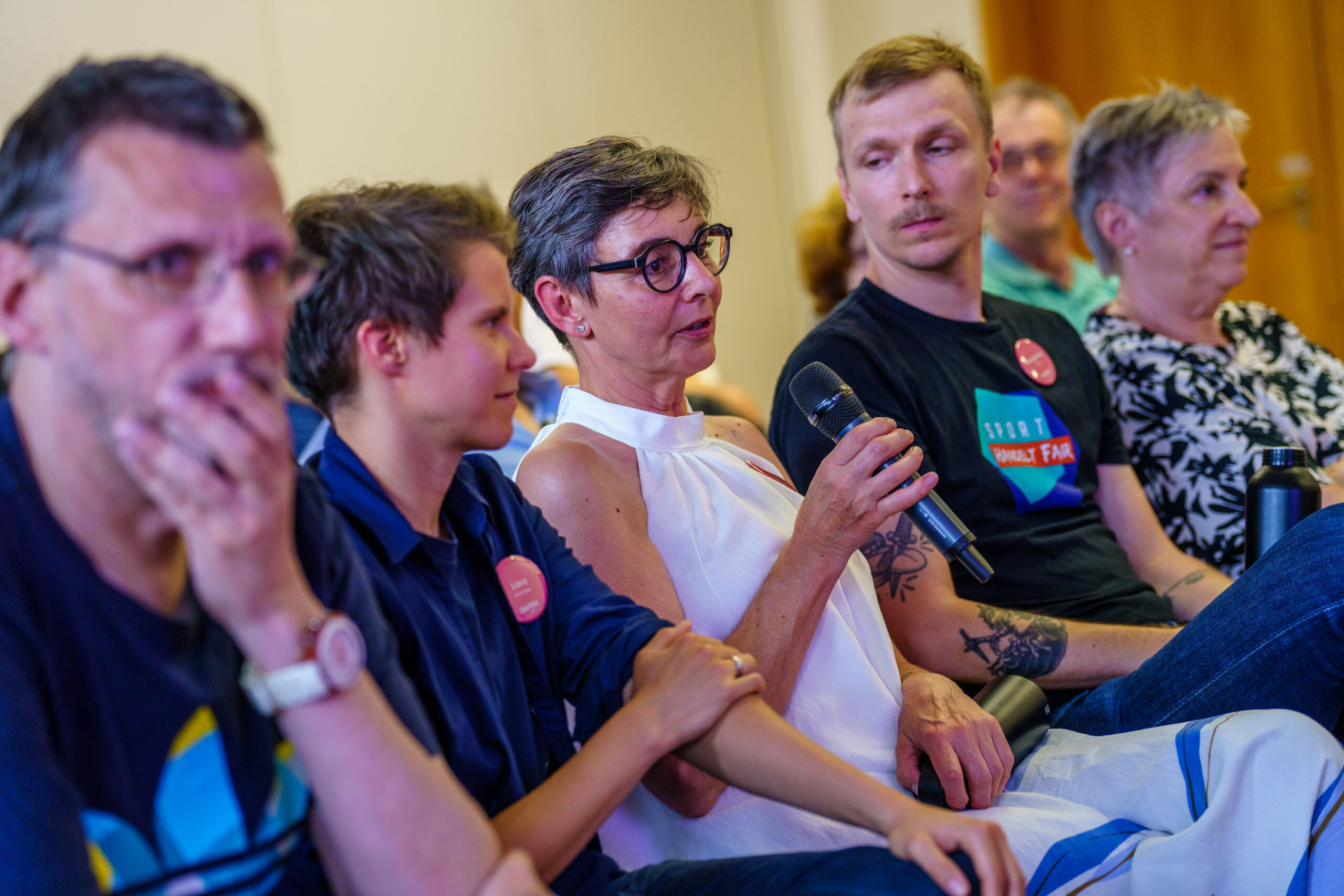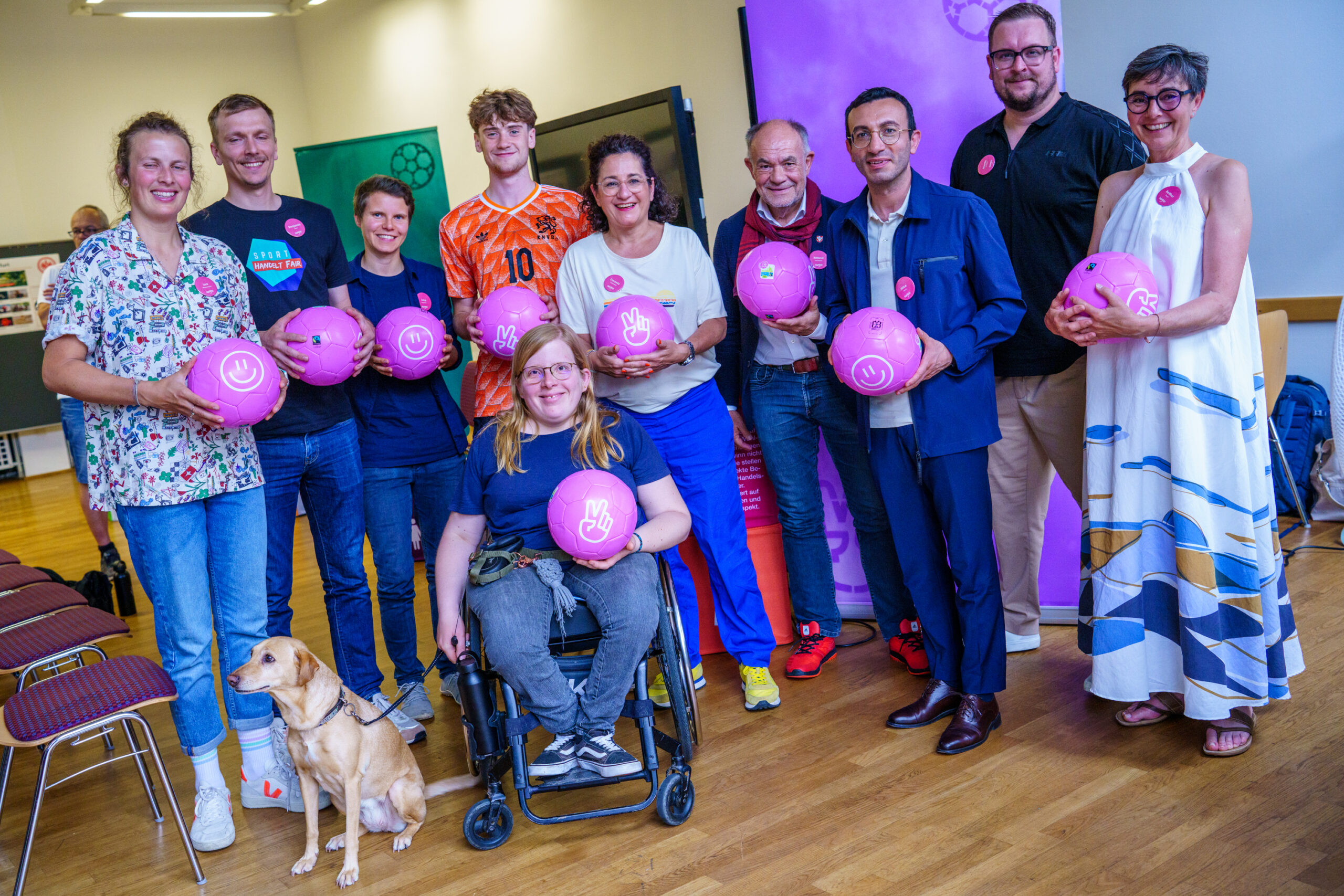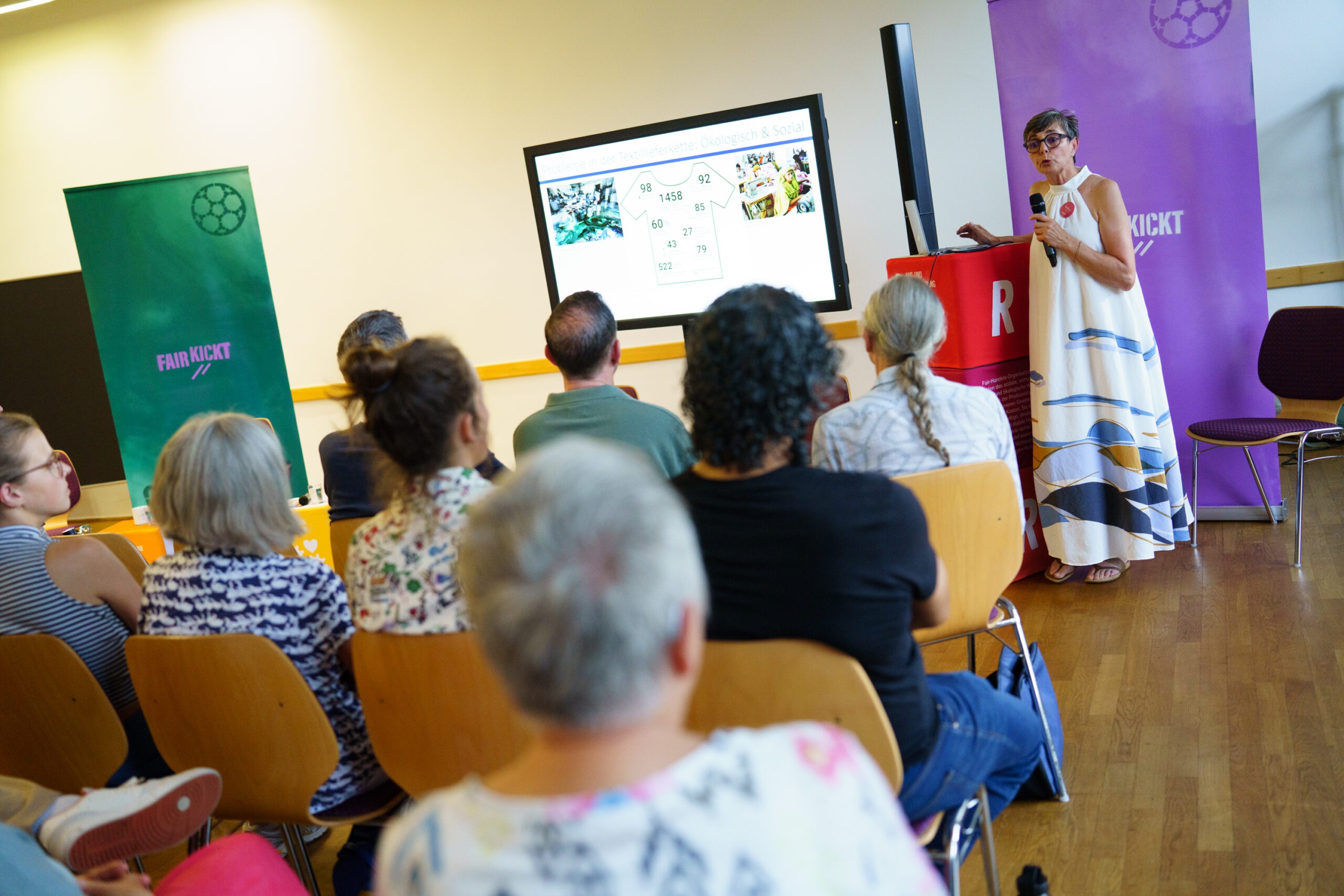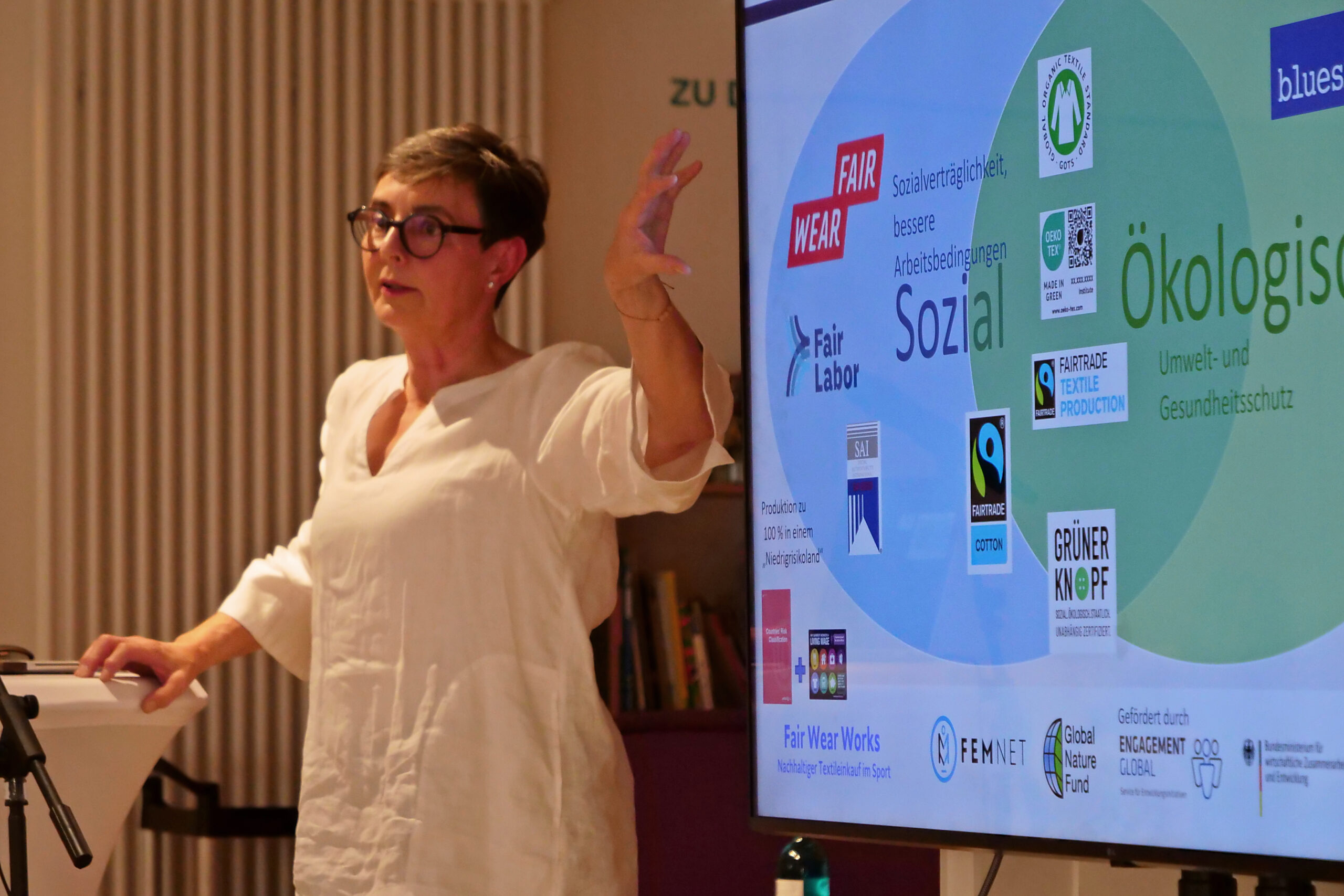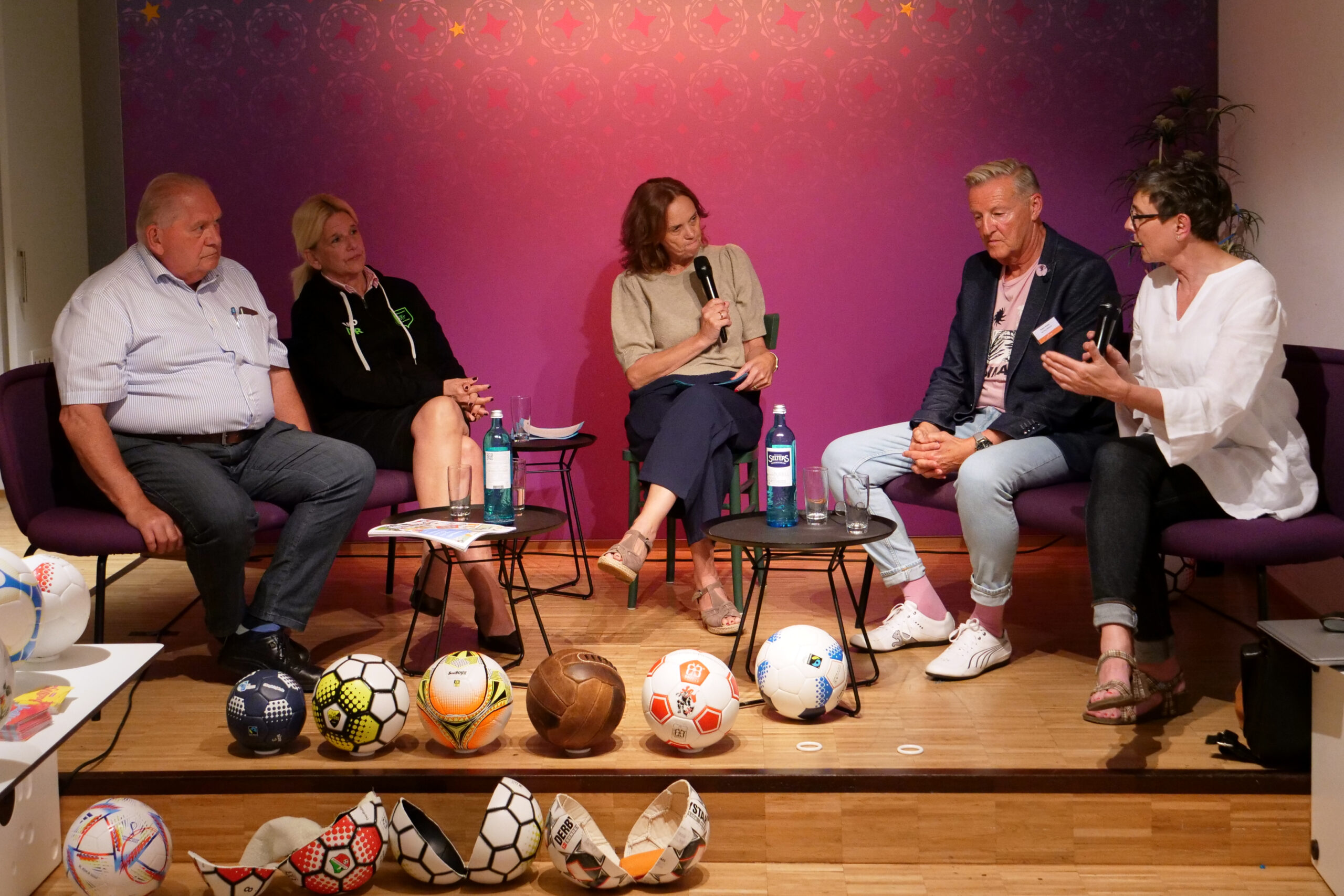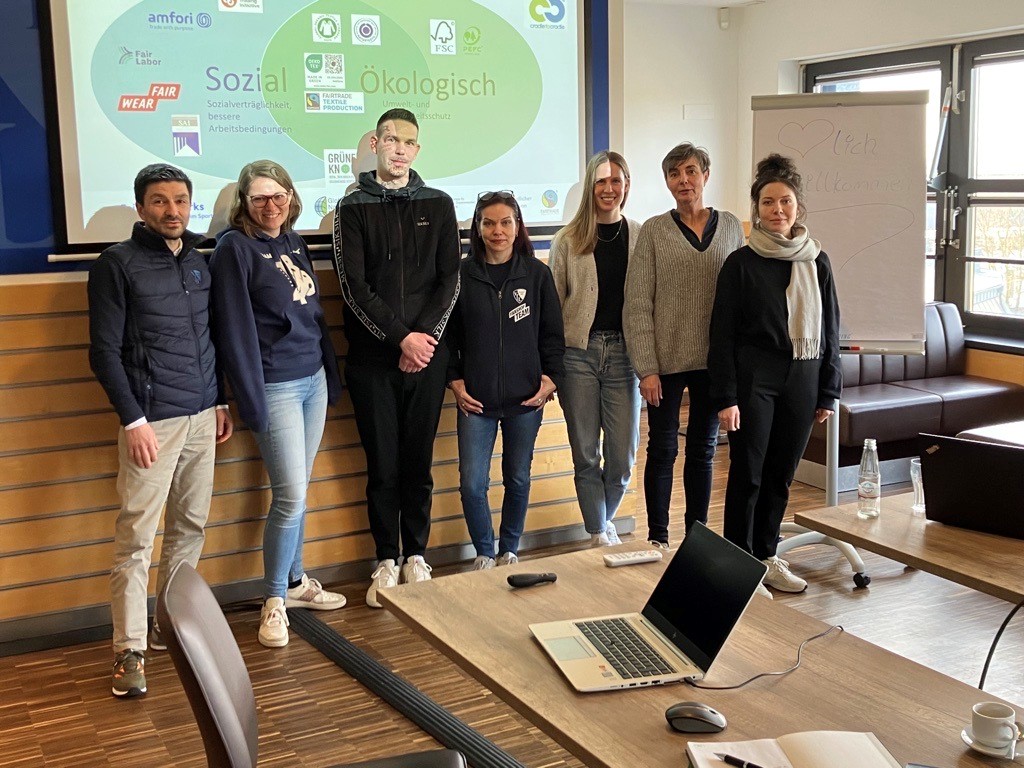We are making the textile supply chain more sustainable. By helping sports clubs and the healthcare sector to implement environmentally friendly purchasing practices, we promote ecological and social production conditions in the countries along the supply chain. From the environmentally conscious procurement of raw materials to fair wages for the seamstresses. So that fair play doesn’t just take place on the pitch.
Whether jerseys, cycling shorts or fan merchandise – according to the Federal Ministry for Economic Affairs and Energy, around eleven billion euros were spent on sportswear and shoes in Germany alone in 2020. However, less than one percent of sportswear traded worldwide comes from socially fair production. Sporting goods are therefore not only of key economic importance, their production also has a global impact on working conditions, water resources, biodiversity and climate change.
The healthcare system is committed to protecting and caring for people. This makes it all the more important to take responsibility when purchasing textiles: Sustainable purchasing practices help to establish fair working conditions and social standards in the textile industry and reduce greenhouse gas emissions and environmental pollution.
This is exactly where we come in with our “Fair Wear Works” project. We sensitize representatives of the target groups to the relevance of the topic through educational offers and show them concrete steps they can take to make their purchasing more sustainable.
Project area
Goals
Set impulses
Presentations on the importance of sustainable procurement and the environmental and social impact of sports textile production
Shaping exchange
Web seminars with experts and practitioners on fair textile procurement in sports clubs and the healthcare sector
Getting into action
Workshops offer guidance on labels and standards, raise awareness of ecological and social grievances, and support with the transition
Impacts
Representatives of sports clubs and the healthcare sector have in-depth knowledge and expertise on the relevance of sustainable textile procurement through workshops and web seminars
Sports clubs and companies in the healthcare sector pay attention to compliance with sustainability criteria when purchasing sports textiles
Improved environmental impact and working conditions for workers in the textile industry
Impressions
Contribution to the sustainability goals
Latest news


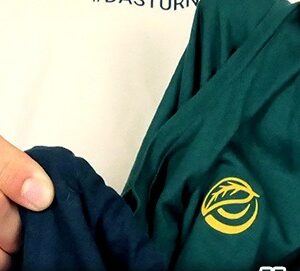

Fair play for nature too: how sports clubs can help safeguard biodiversity with sustainable textiles


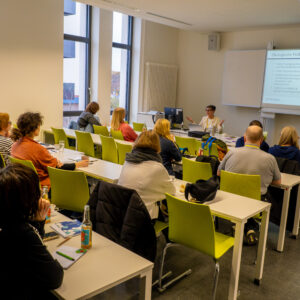
Web seminars
Our Fair Wear Works web seminar series on‘Sustainable impulses for textile purchasing in the sports and healthcare sector‘ offers insights from experts on various textile purchasing topics and promotes the exchange of experiences among participants.
Heat-resistant textiles
You are currently seeing a placeholder content of YouTube. To access the actual content, click on the button above. Please note that data will be passed on to third-party providers.
As an expert in sustainable textiles, Bettina Faust, Fair Wear Works project manager, answered the following questions: What makes heat-resistant textiles? Which materials protect against heat and are sustainable at the same time? And how can heat-resistant and sustainable textiles be identified?
Hazardous fibers
You are currently seeing a placeholder content of YouTube. To access the actual content, click on the button above. Please note that data will be passed on to third-party providers.
Together with our expert Alexandra Caterbow, co-director and co-founder of HEJSupport, we discuss hazardous chemicals in the production of synthetic and natural fibers. Which seals and standards help when choosing safe textiles?
Sustainable textile purchasing
You are currently seeing a placeholder content of YouTube. To access the actual content, click on the button above. Please note that data will be passed on to third-party providers.
We discuss with our expert Louisa Lösing from the Global Nature Fund how we can counteract the loss of biodiversity with sustainable textile purchasing. Find out what you can do to strengthen biodiversity.
Textile seals and standards
You are currently seeing a placeholder content of YouTube. To access the actual content, click on the button above. Please note that data will be passed on to third-party providers.
Together with our expert Kenza Podieh, we take a closer look at important sustainability standards and textile labels. What labels and standards are there and how do they compare with each other? What criteria need to be considered when evaluating and applying them?
Used textiles as a resource
You are currently seeing a placeholder content of YouTube. To access the actual content, click on the button above. Please note that data will be passed on to third-party providers.
We ask Petra Schweiger: What is the status quo in the collection and sorting of used textiles? Which sorting technologies are already available on the market and what are their advantages and disadvantages? What can we expect in the future? How does textile collection 2.0 work?
Textile-to-textile recycling
You are currently seeing a placeholder content of YouTube. To access the actual content, click on the button above. Please note that data will be passed on to third-party providers.
Together with Dipl. Ing. Jürgen Broker, project manager at the ITA Institute for Textile Technology at RWTH Aachen University, we will discuss the opportunities and challenges of textile-to-textile recycling and what relevance it can have with regard to an eco-social transformation.
Textile Packaging
You are currently seeing a placeholder content of YouTube. To access the actual content, click on the button above. Please note that data will be passed on to third-party providers.
What do we actually mean when we talk about packaging? What different types of packaging are used in the textile and clothing industry, and what challenges are associated with them? Are there sustainable alternatives, and how do I recognize them?
Publications & Info
Further information:
- Study by cum ratione on the sustainability of German professional football clubs’ fan stores, 2025(download link from the cum ratione website)
- Article in forum Nachhaltig Wirtschaften: Fair play on the ball is not enough, 24.09.2024(Website of forum Nachhaltig Wirtschaften)
Contact persons

Bettina Faust
Project manager for companies and biodiversity
Tel: +49 172 9765732
b.faust@globalnature.org
Jil Carmen Holtbernd
Project Manager Sustainable Procurement
FEMNET e.V.
Kaiser-Friedrich-Strasse 11
D-53113 Bonn
Tel. +49 228 – 90 91 73 09
Mail: jil.holtbernd@femnet.de
Sponsor

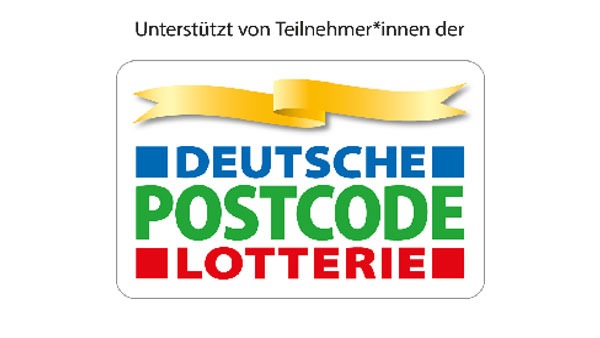

Project partners

